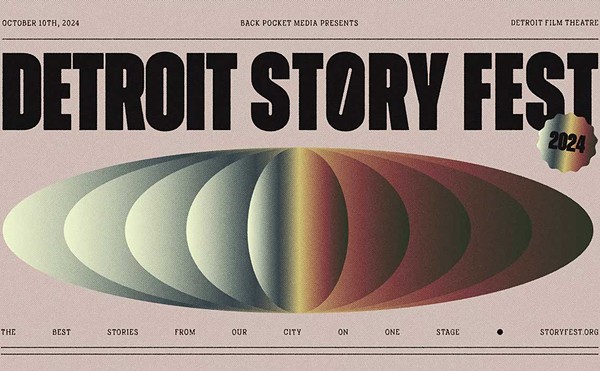Near Hustlers' opening, we're granted a kind of vision. After a fine, though obvious (and admirably athletic) onstage striptease sequence, Jennifer Lopez (as "Ramona") retires to the clear night air of her workplace rooftop. Still in costume but also draped in a crass, luxuriant fur coat (the first of many), she invites the film's starry-eyed lead (Constance Wu, playing "Destiny," also a performer) out of the cold and into its folds. For these few minutes, the two women share not just warmth and intimacy but an identity and persona erected amid a blunt symbology of sex, power, and feminine self-possession, one rising from clashes of capital and class. In this scene, Lopez absorbs the full spectrum of the madonna/whore dialectic, owning both a nurturing impulse and a magnetic attraction that grips Wu's character as it did the men in the scene before — evidenced therein by a clear, desirous gaze with undeniable Freudian overtones.
That's all to say the scene's subtext is blunt but complicated, and merits exploration. (After her act, Ramona asks Destiny whether money "makes [her] horny.") Unfortunately, it never gets its due and its qualities are never to be repeated. Like P.T. Anderson's Boogie Nights (an old favorite), director Lorene Scafaria frames Hustlers as historical allegory, a story of America as much as of its characters' rise and fall, straddling the unfettered, decadent excess and mournful, grimy desperation on either side of the 2008 economic crash. As in Boogie Nights, its characters pursue wealth and class first through sex work and later (after the crash) through criminal malfeasance, but it errs in telling its story through a self-justifying, penitent frame: specifically, via an interview with a sympathetic journalist.
Embarking on a crime spree in which they seduce and drug wealthy Wall Street types and rob them with credit charges, the film's leading women constantly defend their actions to an audience that would happily assess them unaided. Hampering the fun, Robin Hood-like air of pillaging the idle, male, and rich men (all of Hustlers' men are nobodies) with wounded rationalizations — "Hurt people hurt people," Wu murmurs — Hustlers is unwilling to set aside pushy moralizing to let its characters define themselves in less flattering ways. Would it be so bad to depict career strippers who are (incidentally, unrelatedly) permitted to be bad? Not a few of us saw Showgirls, and we've come quite far since then. Must all onscreen sex workers have hearts of purest gold?
The case Scafaria makes wouldn't seem so ludicrous if she didn't call attention both to its making and to her leads' particular excesses. Though Lopez's and Wu's characters are both single mothers early on, it quickly becomes clear that after '08 their turn to crime serves not their own children but mountains of other accessories, acquired in a gleefully freewheeling, hyper-capitalist lifestyle. Still quartered in the high-rises they took up in before the crash, the two bemoan their lack of funds before shopping sprees cut (much like most of the movie) akin to music videos; after each con, they celebrate their winnings.
When they find just how well crime pays, their flexes are basically macho ("I was CFO of my own fuckin' corporation") in a manner evoking the brokers they live off of — and like any executives seeking growth, its pursuit justifies the recruitment of a host of new accomplices, not all of them reliable. A late scene of a Christmas party in Ramona's palatial condo looks more like a commercial for Hallmark or JC Penney than a scene from any movie you'd want to sit down for, with the women toasting, dancing, and opening pricey gifts. If memory serves, there's even a dog — it's positively numbing in its grasps at sweetness.
To be clear: the problem is not that these women's con is any worse than what the Wall Streeters they're exploiting have done to them, or to the rest of us, or — considering the drugging and robbing part — than what so many rotten frat boys do quite regularly. In fact, it's really quite a lot better. The trouble is that this same conclusion is something most viewers could draw out, but Scafaria's direction (perhaps at the whim of her producers) feels squeamish, striving to frame her real-life figures not just as relatively minor offenders but as morally upright. Time after time Scafaria fails to trust her audience, boldfacing connections and points that are simply obvious to most of us, going so far as to double back on the portrait of the characters we're given. It's a strange time in history to frame desperation to be rich as relatable or sympathetic. Greed stands more convincingly as an eternal, poisonously ubiquitous motivator, and one whose magnetism is never in doubt. If it's what these women want, then let's have them chase it wherever it takes them. It's a desire, like lust, that needs no explanation — it's better to simply show it and let us watch.
Stay on top of Detroit news and views. Sign up for our weekly issue newsletter delivered each Wednesday.






